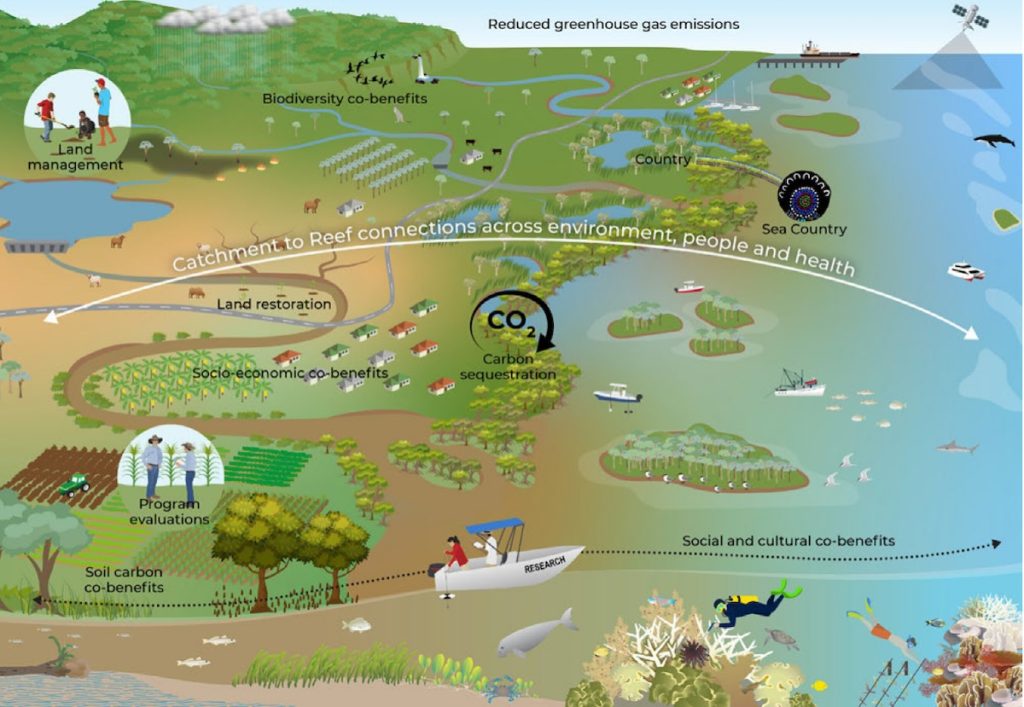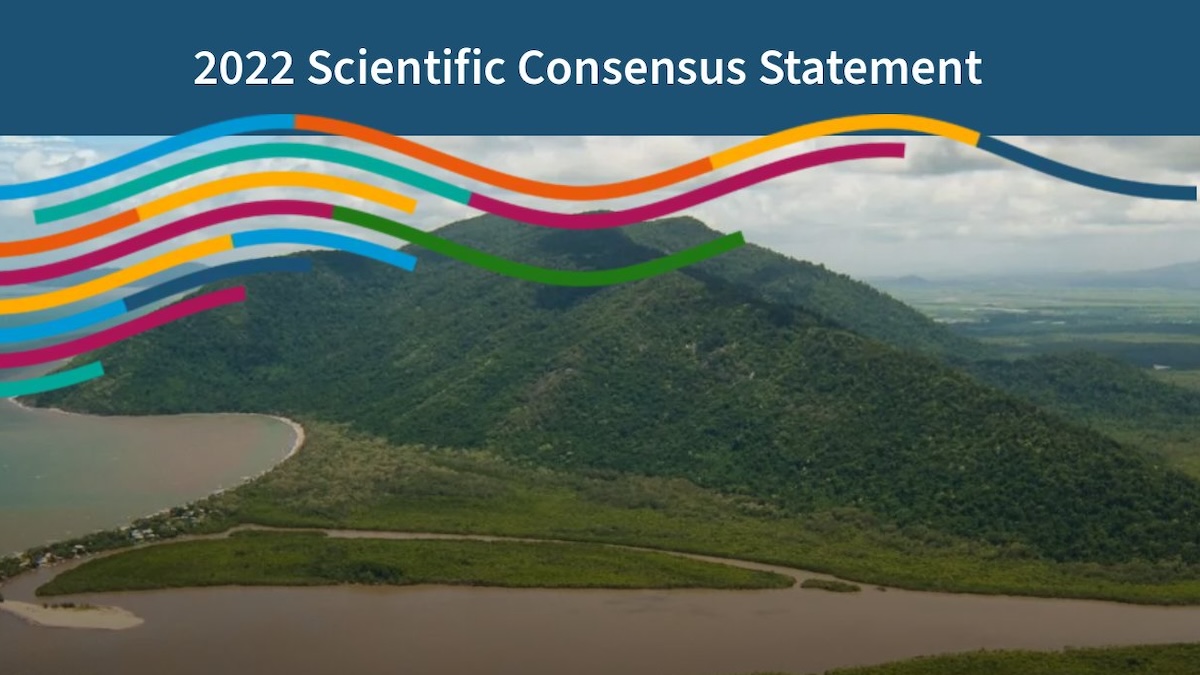- August 2022
Over the past two years, a large multi-authored report has been put together to give a definite statement for the impacts of water quality on the Great Barrier Reef. The Statement involved more than 200 experts, 78 authors and 69 reviewers from Australia and overseas, with the outputs based on evidence from over 4,000 publications – making it one of the most comprehensive and rigorous review ever undertaken of the influence of land-based activities on Great Barrier Reef water quality and ecosystem condition, and the management actions that can support water quality improvements.
The 2022 Scientific Consensus Statement adopted a consistent, structured and systematic evidence-based approach to address 30 questions led by expert authors and was independently peer reviewed. It was put together to ensure that policy or management decisions are based on consideration of the full synthesis of the evidence.
Two of our NP-GAN partners were authors within the consensus statement. Cefas (Michelle Devlin) contributed to the overview statement, led by Jane Waterhouse from C2O Consulting and representing a strong cross section of scientists working across the catchment to coast issues. Guided by an expert working group and best practice to reach a consensus on eight overarching conclusions, the 2022 Scientific Consensus Statement concluded that:
- Pollutant loads are well above pre-development rates, where they come from, and how they enter waterways.
- Knowledge of some of the most effective management actions for improving water quality has been strengthened.
- Improved understanding of the importance of good water quality in the context of climate change, especially around ecosystem recovery following disturbance events, and the distribution and impacts of pesticide mixtures, hotspots for pesticide management, expanded scope of evidence on other pollutants, and further clarification of the potential benefits of best management practices.
- The need for greater emphasis on social values, the importance of landholder trust in government, scientists and programme delivery organisations in engendering management practice change and greater collaboration among everyone involved in water quality management.

Infographic of catchment to reef connections across environment, people and health.
Under the theme ‘Exploring the human dimensions of water quality improvements and emerging science’, Michelle Devlin and Amelia Wenger from Wildlife Conservation Society were co-authors for one of the chapters with Dr Amelia Wenger, looking at the effectiveness and efficiency of land management approaches for improved water quality.
The chapter looks at the key attributes of successful monitoring and evaluation programmes to support coastal and marine water quality management, and provides examples of innovative monitoring and evaluation frameworks, methods and approaches that are applicable to the Great Barrier Reef. Many of the lessons learnt from Cefas’ national and international work formed part of this narrative.

Prof. Devlin advised that the Consensus Statement also forms a critical part of the new UN Decade Programme – Nutrient Pollution – Global Action Network – NP-GAN, where the team has partnered with the Great Barrier Reef Marine Park Authority.




